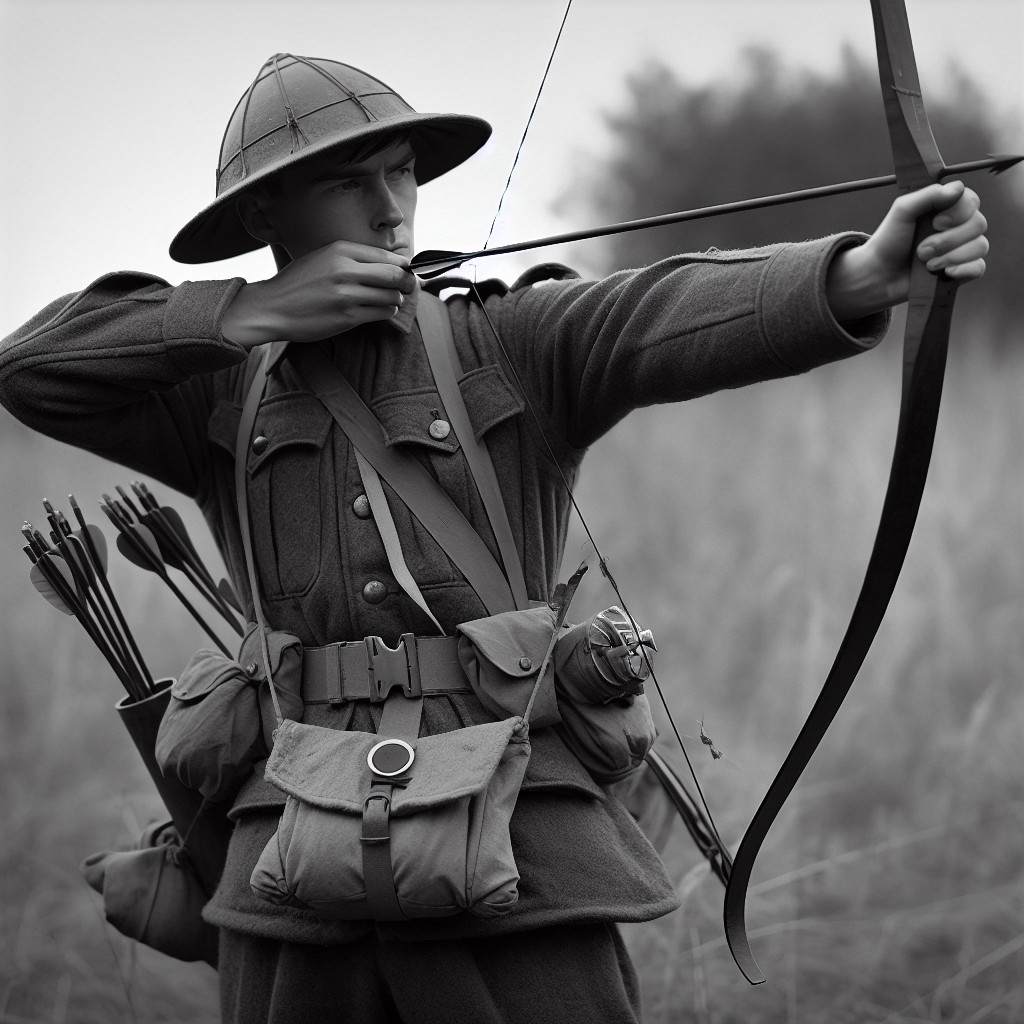A contemporary archer
Jack Churchill's bizarre war gear

Mad Jack Churchill fighting with bow and arrow - AI generated image
World War II brought significant military innovations that revolutionized tactics and combat. Modern weaponry—tanks, assault rifles, machine guns, submarines, and battleships—dominated the battlefield, somewhat overshadowing the individual skill of soldiers that had been essential in past wars dominated by hand-to-hand combat and melee weapons. However, one British soldier stood out for his decidedly "medieval" equipment: John Malcolm Thorpe Fleming Churchill, better known as Jack Churchill (1906–1996), the man who went to war armed with a longbow, arrows, and even a medieval Scottish claymore.
Jack Churchill was born in Surrey, England, and from a young age demonstrated exceptional skill with archery and bladed weapons. He initially enlisted in the British Army but left in 1936. Thanks to his expertise with the bow and his talent for playing the bagpipes, he even secured a role in the 1924 film *The Thief of Bagdad* directed by Raoul Walsh. When Germany invaded Poland, Churchill rejoined the army, serving in his former unit, the Manchester Regiment. He became famous for using his longbow and sword instead of conventional firearms.
In 1940, during a surprise attack on enemy forces, he killed a German officer with his longbow, becoming the only soldier in World War II confirmed to have killed an enemy with a medieval-style longbow. Nicknamed "Mad Jack" due to his eccentric choice of weaponry, he often remarked, “Any officer who goes into action without a sword is improperly armed.”
In 1941, Churchill was appointed deputy commander for an expedition to Norway, where he distinguished himself in combat, leading charges armed with his bagpipes and claymore. By 1943, he had risen to the rank of battalion commander, earning recognition for his bravery and unconventional style.
After the war, Churchill famously declared, “If it weren’t for those damned Yanks, we could have kept the war going for another 10 years.” This remark reflected his commitment to soldiering, which he had turned into a personal calling.
John Parker, Commandos: The Inside Story of Britain's Most Elite Fighting Force, Headline, 2000
2025-07-25
Salvatore Ciccarello
